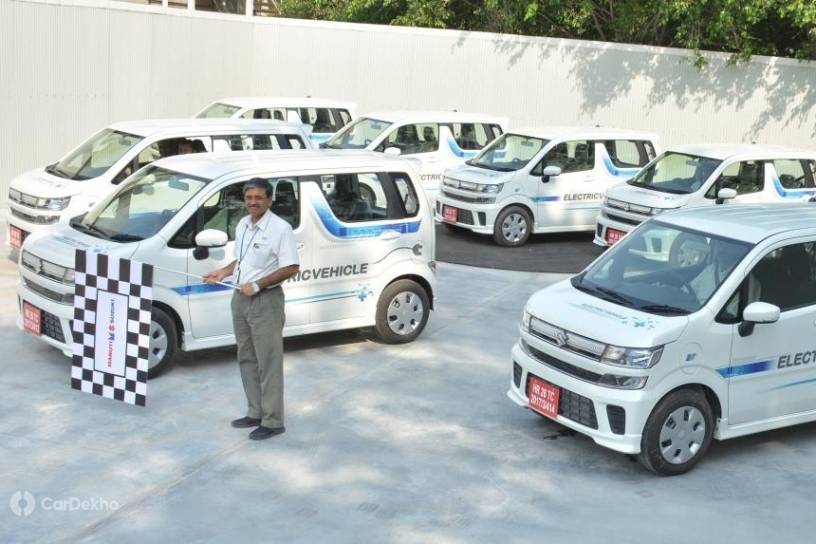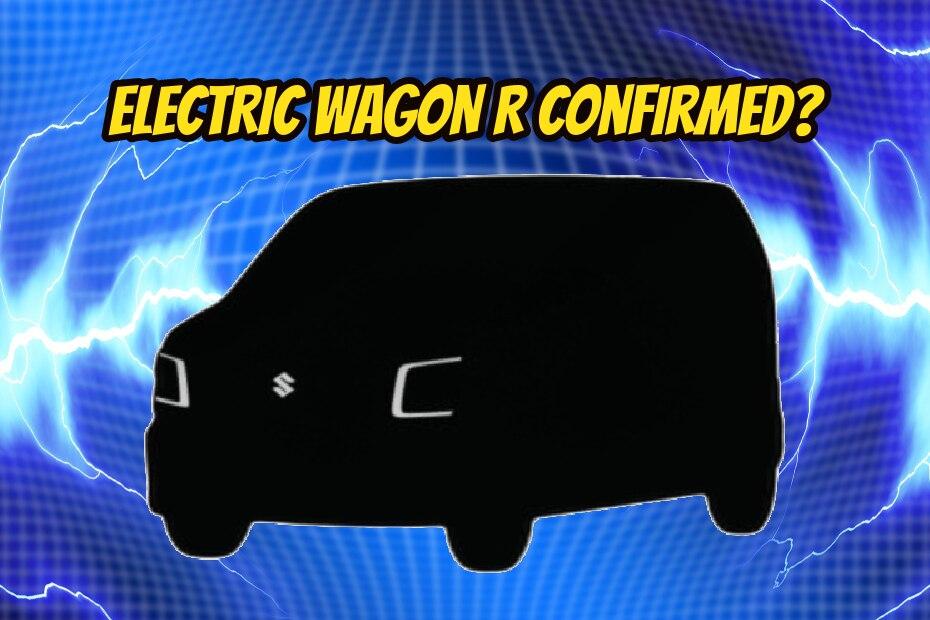Maruti’s Small Electric Car Could Be More Expensive Than Top-Spec Dzire
Modified On Jan 23, 2020 03:03 PM By Jagdev
- Write a comment
Maruti is testing a fleet of electric cars based on the Japanese WagonR that is based on the Heartect platform

-
Maruti’s top executives suggest that the small Maruti EV could cost over Rs 9 lakh.
-
The EV will be based on the Heartect platform.
-
It will not be a long-range electric car.
-
The small Maruti EV will be launched in India in 2020.
-
Will be eligible for subsidy under FAME II scheme.
Maruti Suzuki is testing a fleet of 50 electric cars before launching its first EV in India in 2020. The small electric car will compete in the affordable electric car space against the likes of the Tata Tiago electric and Mahindra eKUV100 (both upcoming models). Affordability is a relative term when it comes to electric cars and Maruti has now indicated a price north of Rs 9 lakh for this EV.
Maruti’s chairman RC Bhargava has suggested that the electric version of a Rs 5 lakh car in India could cost Rs 9 lakh. The company’s managing director, Kenichi Ayukawa has hinted that the small electric car’s price could also go up to as much as Rs 12 lakh, given the taxation system in India. For reference, the most expensive version of the Dzire is priced at Rs 9.55 lakh (ex-showroom Delhi). The Maruti EV will qualify for the Rs 1.5 lakh tax benefit under the FAME II scheme since it will be priced under Rs 15 lakh.

A sticker price of around Rs 9 lakh for a small electric car is neither surprising nor encouraging enough to make it a compelling buy. Mahindra’s eVerito, which is the electric version of the Verito sedan, costs over Rs 10 lakh, whereas its diesel version costs around Rs 7.5 lakh.
The top executives of India’s largest carmaker (by volume) have expressed concerns about the adoption of electric cars in the country when the price difference between electric cars and their petrol or diesel counterparts is so high.

Given that electric cars have low running and maintenance costs, these seem to be an attractive option for fleet owners (commercial) or private buyers with high average running. However, low range and high recharge times make them a less practical alternative to diesel- or CNG-powered cars or even mild-hybrid petrol cars. In order to encourage the adoption of electric cars, carmakers will have to make sure they offer high range and quick charging times, both of which add significantly to the cost of the car.
2 out of 2 found this helpful















